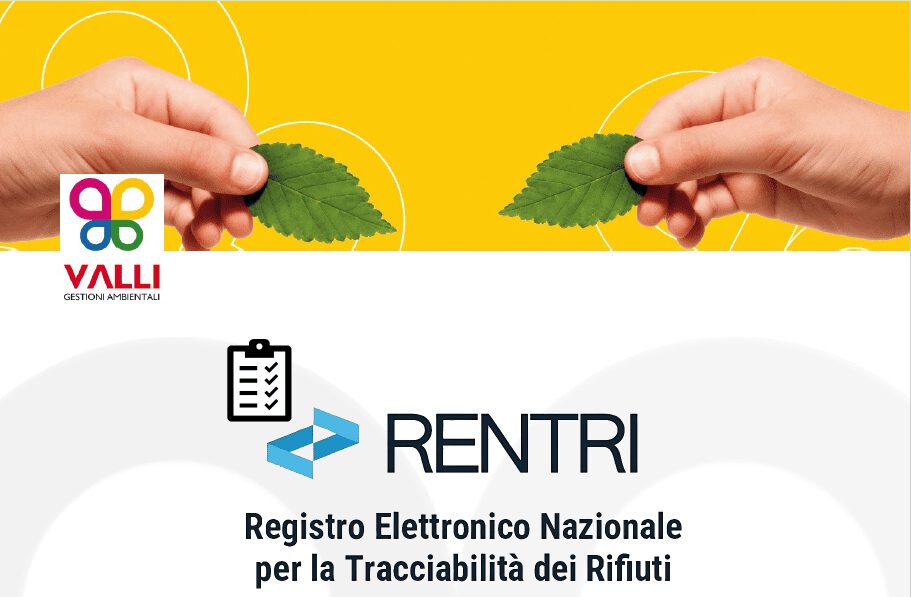Waste management is a fundamental aspect for companies and professionals operating in the environmental sector. With increasingly stringent regulations and a growing focus on sustainability, proper disposal and recycling practices are essential. In this context, environmental certifications play a key role, ensuring compliance with regulations, improving operational efficiency and strengthening the company’s reputation.
But what are the most important certifications in waste management? And why can obtaining them make a difference for a company? In this article, we will delve into:
- The benefits of certifications in waste management, including compliance with laws, reducing environmental impact, and improving corporate image.
- The main certifications in the sector, including:
- ISO 14001, the international certification for environmental management systems.
- EMAS (Eco-Management and Audit Scheme), the voluntary scheme of the European Union for the improvement of environmental performance.
- EU Ecolabel, the eco-label for products and services with low environmental impact.
- Other relevant certifications, such as ISO 9001, applied to quality in waste management.
- The certification process, with practical guidance on how to obtain it, costs, timing and recognized certification bodies.
Through this comprehensive guide, we will analyze how certifications can improve waste management, ensuring compliance, efficiency, and sustainability.
Why certifications in waste management are essential
Environmental certifications in waste management are not just a bureaucratic requirement, but represent a real tool to improve business efficiency, ensure regulatory compliance and reduce environmental impact. Companies that adopt certified systems enjoy numerous benefits, ranging from greater reliability on the market to access to incentives and facilitations.
Let’s take a closer look at why getting certified is so important.
Regulatory compliance and legal obligations
Il settore della gestione dei rifiuti è regolato da normative nazionali ed europee sempre più rigorose, volte a garantire il corretto smaltimento e trattamento dei rifiuti per proteggere l’ambiente e la salute pubblica.
Obtaining a certification, such as ISO 14001 or EMAS, helps companies to:
- Demonstrate compliance with environmental laws, reducing the risk of administrative and criminal sanctions.
- Manage documentation efficiently, avoiding bureaucratic errors and ensuring traceability and transparency.
- Prevent the risk of non-compliance, through periodic audits and continuous monitoring of its activities.
Certified companies therefore have a competitive advantage over those that do not have certifications, as they are more reliable in the eyes of authorities and customers.
Environmental benefits and reduction of ecological impact
One of the main objectives of the certifications is to promote sustainable practices in waste management, reducing pollution and promoting the circular economy.
Adopting a certified management system allows you to:
- Optimize the consumption of resources, reducing waste and improving the efficiency of production processes.
- Limit emissions and pollution, thanks to more controlled and less impactful disposal strategies.
- Promote the recycling and reuse of materials, helping to reduce the amount of waste going to landfills.
Companies that adopt certified environmental standards not only protect the environment, but also improve their corporate image, demonstrating a concrete commitment to sustainability.
Benefits for companies: reliability, reputation and access to new markets
In addition to regulatory and environmental aspects, certifications offer important economic and strategic advantages. A certified company is perceived as more reliable and responsible, with positive effects on several levels:
- Improved corporate reputation: Customers and business partners prefer to work with companies that meet high environmental standards.
- Greater competitiveness on the market: many tenders and public tenders require specific certifications in order to participate, offering additional business opportunities.
- Access to incentives and financing: numerous government programs and European funds reward certified companies with economic benefits for green investments.
Investing in an environmental certification is therefore a strategic choice that brings long-term benefits, both in terms of sustainability and economic growth.
The main certifications for waste management
Certifications in waste management are critical tools for ensuring that companies operate in compliance with environmental regulations and adopt sustainable practices. Each certification has specific objectives, from reducing environmental impact to improving the quality of disposal and recycling processes.
Below we analyze the most relevant certifications in the waste management sector, explaining their characteristics, benefits and the process of obtaining them.
ISO 14001 certification: the environmental management system
ISO 14001 is one of the most widely used environmental certifications internationally. Issued by the International Organization for Standardization (ISO), this certification defines the requirements for an effective environmental management system (EMS).
Objectives of ISO 14001
The certification is designed to help companies to:
- Reduce the environmental impact of its activities.
- Ensure compliance with applicable environmental regulations.
- Improve waste management, optimizing processes and resources.
Benefits of ISO 14001
Companies that adopt ISO 14001 can benefit from:
- Greater operational efficiency, with a more structured management of waste and resources.
- Reduction of the risk of penalties, thanks to the monitoring and compliance with environmental regulations.
- Improved corporate image, with a strong commitment to sustainability recognized by customers and business partners.
How to get ISO 14001 certified
- Initial analysis: assessment of the environmental impact of the company and current practices.
- Implementation of an environmental management system that complies with the requirements of the standard.
- Internal audit to verify the effectiveness of the system implemented.
- Certification by an accredited body, which issues the certificate after a thorough inspection.
EMAS (Eco-Management and Audit Scheme) certification
The EMAS (Eco-Management and Audit Scheme) is a voluntary environmental certification system promoted by the European Union. It is considered a more advanced level than ISO 14001, as it requires a greater commitment to transparency and continuous improvement of environmental performance.
Objectives of EMAS certification
- Constantly improve the company’s environmental performance.
- Ensure transparency and communication with stakeholders through a public Environmental Statement.
- Actively involve employees and stakeholders in the company’s environmental management.
Differences between EMAS and ISO 14001
- EMAS is more stringent: it includes all the requirements of ISO 14001, but adds the obligation to publish an Environmental Declaration validated by a third party.
- Greater transparency: EMAS-certified companies must make their environmental performance public.
- Continuous monitoring: EMAS requires constant improvement of business practices.
How to get EMAS certified
- Implementation of an environmental management system, following the criteria of ISO 14001.
- Drafting of the Environmental Statement, which describes the environmental impact of the company and the measures taken to reduce it.
- Verification by an accredited body, which assesses compliance with EMAS criteria.
- Registration with the competent body, which issues the official certificate.
EU Ecolabel certification: the eco-label
The EU Ecolabel is a Europe-wide eco-label awarded to products and services that meet high environmental standards throughout their life cycle.
Objectives of EU Ecolabel certification
- Reduce the environmental impact of products and services.
- Promoting a more sustainable and circular economy.
- Provide consumers with reliable guarantees on the ecological quality of a product or service.
Who is it for?
The EU Ecolabel can be obtained by companies operating in various sectors, including:
- Waste management (e.g. treatment and recycling plants).
- Cleaning and cleaning products.
- Tourist and accommodation services with high ecological standards.
How to obtain EU Ecolabel certification
- Verification of the specific environmental criteria for the product or service.
- Submission of the application to the competent national body.
- Assessment and compliance testing to demonstrate compliance with the required standards.
- Issue of the EU Ecolabel, valid for a fixed period and renewable.
Other relevant certifications in waste management
In addition to the best-known certifications, there are other standards that are useful for ensuring high quality in waste management.
ISO 9001: Quality management in disposal processes
ISO 9001 is a certification for quality management systems, which is also applicable to companies operating in waste management. It ensures that business processes are efficient, structured and oriented towards continuous improvement.
National and local certifications
In some countries, there are specific certifications for waste management, often required to operate in certain sectors or to participate in public tenders. Some examples include:
- National Register of Environmental Managers (Italy), which regulates the registration of companies in the waste sector.
- Specific certifications for the treatment of hazardous waste, required in industrial areas with a high environmental impact,
Environmental certifications are not only a regulatory requirement, but represent an opportunity for companies to improve their efficiency, reduce operating costs and increase customer trust.
In the next chapter, we will analyze how to obtain a certification in waste management, with a practical guide on procedures, costs and timelines.
How to Get a Certification in Waste Management
Obtaining an environmental certification in the waste management sector is a process that requires planning, analysis and compliance with specific standards. Companies that want to be certified must adopt a structured approach, following a series of key steps to ensure compliance with the requirements.
Let’s see in detail the phases of the certification process, the costs and timing and the recognized certification bodies.
Steps in the certification process
Each certification has specific requirements, but in general, the path to obtaining an environmental certification in waste management follows these steps:
- Preliminary analysis and evaluation of the company
- Identification of critical environmental aspects related to waste management.
- Assessment of compliance with current regulations.
- Definition of corporate objectives in terms of sustainability and environmental management.
- Implementation of an environmental management system
- Definition of company procedures and policies for the treatment and disposal of waste.
- Training staff on new practices and responsibilities.
- Continuous monitoring of processes to identify areas for improvement.
- Internal audit and compliance verification
- Internal control to verify the application of the new procedures.
- Identification of any non-conformities and correction of critical issues.
- Request for certification and external audit
- Selection of an accredited certification body.
- Official audit by the body to assess compliance with the requirements.
- Issuance of the certificate in case of success.
Costs and timing of certification
The cost of a certification can vary depending on several factors, including:
- Company size and process complexity: A company with multiple locations or operations will have higher costs than a small business.
- Type of certification: for example, obtaining ISO 14001 can cost between €3,000 and €10,000, depending on the industry and the complexity of the environmental management system.
- Cost of the certifying body: prices vary according to the body chosen and the level of support required during the process.
As for the timing, the certification process may require:
- From 3 to 6 months for certifications such as ISO 14001.
- From 6 to 12 months for more complex certifications such as EMAS, which also requires the publication of the Environmental Declaration.
A well-structured company, which follows the procedures correctly, can significantly reduce certification times, avoiding delays due to non-compliance.
Recognized certification bodies
Environmental certifications can only be issued by certification bodies accredited under EC Regulation 765/2008 that verify compliance with the required standards: in Italy these bodies are those accredited by Accredia, the Italian accreditation body. Some of the most recognized entities are:
- CERTIQUALITY S.r.l.;
- TÜV Italia S.r.l. and TÜV Rheinland Italia S.r.l.;
- Bureau Veritas Italia S.p.A.;
- SGS Italia S.p.A.e DNV Business Assurance Italy S.r.l.
The choice of the certifying body is a fundamental aspect to ensure reliability and recognition of the certification at national and international level.
Conclusion
Certifications in waste management represent a strategic added value for companies, ensuring compliance with regulations, improved environmental performance and greater competitiveness on the market.
Adhering to recognized standards such as ISO 14001, EMAS and EU Ecolabel allows you to:
- Reduce environmental impact and improve efficiency in waste management.
- Avoid penalties and ensure compliance with applicable laws.
- Access public tenders and funding opportunities reserved for certified companies.
- Strengthen your reputation and the trust of customers and stakeholders.
For those who work in the sector, it is essential to rely on specialized companies that can support the company in obtaining certifications and sustainable waste management. An example of excellence in this area is Valli Gestioni Ambientali.
Investing in environmental certification is not only a mandatory choice for compliance with the law, but a concrete opportunity to differentiate oneself on the market and actively contribute to environmental sustainability.




